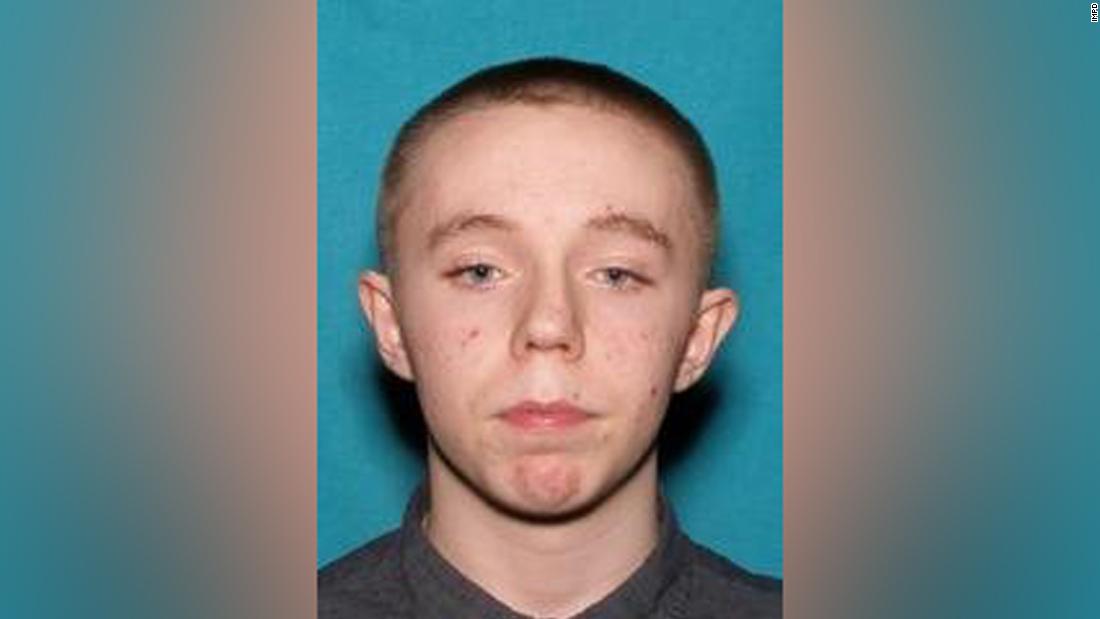
In March 2020, the mother of gunman Brandon Hole contacted police because she was worried about his behavior after he purchased a gun, according to recently released details from Indianapolis Metropolitan Police Department (IMPD). She told police he told her "he was going to point a recently purchased shotgun at police officers so they would shoot him." And when police went to their home, they observed he had visited White supremacist websites, the report said.
Investigators are still trying to determine the motive behind the shooting.
In an attack that lasted only a matter of minutes, Hole opened fired at the facility near Indianapolis' main airport before taking his own life Thursday night. Of the eight people killed in the violence, four were members of the area's Sikh community, Maninder Singh Walia, a member of the Sikh community in Indianapolis, told CNN on Friday.
The attack marks at least the 50th mass shooting -- defined as four or more casualties excluding the shooter -- since the Atlanta-area spa shootings March 16. It was the US's deadliest shooting since 10 people were killed March 22 at a grocery store in Boulder, Colorado.
The case has also raised concerns over access to guns, as Hole had his gun seized in the 2020 incident.
After his mother told officers on March 3 that she feared for her safety after her son purchased a gun a day earlier, the IMPD detained Hole, seized the gun, put him on an immediate mental health temporary hold and then transported him to a local hospital for evaluation, the police report said.
As Hole was being placed in handcuffs, he became anxious and said, "Please just turn the power strip off on my computer" and "I don't want anyone to see what's on it," according to the report. One officer, who was described as clearing the upstairs and securing the shotgun, "observed what through his training and experience" were White supremacist websites, the report said.
Limitations of red flag laws
Despite the temporary mental health hold in March, Hole was able to legally purchase assault rifles in July and September 2020, Indianapolis police said.
The case "illustrates the limitations" of state law, The Marion County, Indiana, Prosecutor Ryan Mears said Monday.
Mears said the state's Jake Laird Red Flag gun law allows police to seize and hold firearms from individuals undergoing mental health issues, but the state only has 14 days to file a petition requesting a person be designated as having a violent propensity or mental instability.
Because the shotgun taken from Hole's home had been secured and the family didn't want it back, prosecutors felt they "achieved" the objective of the law, Mears said. If the state had filed a petition, the court might have determined prosecutors didn't have legal authority to keep the weapon.
"In this particular case, the petition was not filed because the family in this particular case had agreed to forfeit the firearm that was in question and they were not going to pursue the return of that firearm," Mears said.
Mears said the state didn't have access "to anything to indicate that (Hole) had had a history or documented diagnosis of mental illness."
"We have 14 days under the statute and because we have 14 days our ability to have access to meaningful medical history, meaningful mental health records, is severely limited." Indiana law allows a person 30 days to respond to a subpoena, Mears said.
"The sad reality is that during the pendency of these matters there's nothing prohibiting someone from purchasing a firearm, that's just the sad truth," Mears said.
8 killed and 4 people still hospitalized
On Friday night, Indianapolis police released the names of the eight deceased victims. They were Matthew R. Alexander, 32; Samaria Blackwell, 19; Amarjeet Johal, 66; Jasvinder Kaur, 50; Jaswinder Singh, 68; Amarjit Sekhon, 48; Karli Smith, 19; and John Weisert, 74.
Four individuals remained hospitalized Monday with injuries sustained in the attack, FedEx said.
While the shooter's motive isn't yet known, "he targeted a facility known to be heavily populated by Sikh employees, and the attack is traumatic for our community as we continue to face senseless violence," said Satjeet Kaur, executive director of the Sikh Coalition.
That sentiment was echoed in a letter to the Biden administration Saturday, in which the Sikh Coalition wrote, "It was no accident that the shooter targeted this particular FedEx facility where he had worked and knew was overwhelmingly staffed by Sikhs."
Two of the victims, Sekhon and Kaur, were relatively new to Indianapolis and were working the overnight shift at the FedEx facility when they were killed, said Rimpi Girn, an Indianapolis resident who knew them.
Sekhon, after immigrating to the US in 2004, moved to Indiana in 2019 from Ohio to be closer to family and relatives, said Girn, a close family friend. Sekhon leaves a husband and two sons, ages 13 and 19, Girn said.
Kaur, who immigrated to the US in 2018, was the breadwinner for her family, according to Girn. Sekhon drove Kaur to work because Kaur didn't have a driver's license, Girn said.
As of late Sunday night, a verified GoFundMe campaign for the families of the victims set up by the National Compassion Fund has raised more than $1 million, with FedEx donating $1 million.
The fund said 100% of the donations "will go to the families and those affected by the tragedy."
U.S. - Latest - Google News
April 20, 2021 at 05:24PM
https://ift.tt/3gnY5Eg
A year before the Indianapolis FedEx mass shooting, the gunman browsed White supremacist websites, police say - CNN
U.S. - Latest - Google News
https://ift.tt/2ShjtvN
Shoes Man Tutorial
Pos News Update
Meme Update
Korean Entertainment News
Japan News Update
Bagikan Berita Ini















0 Response to "A year before the Indianapolis FedEx mass shooting, the gunman browsed White supremacist websites, police say - CNN"
Post a Comment